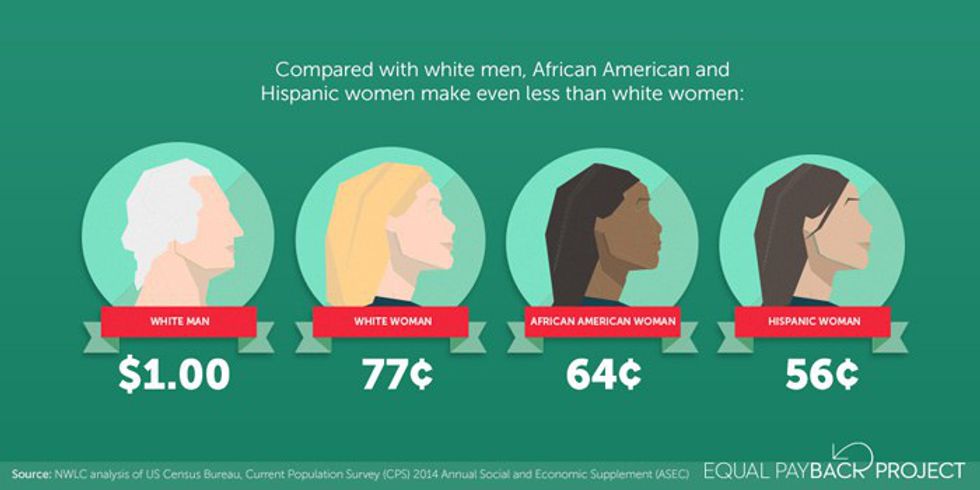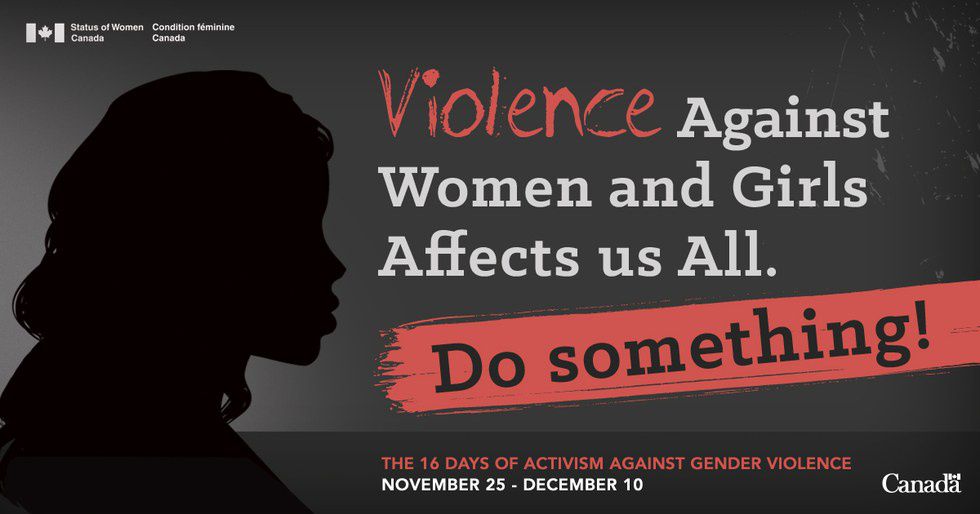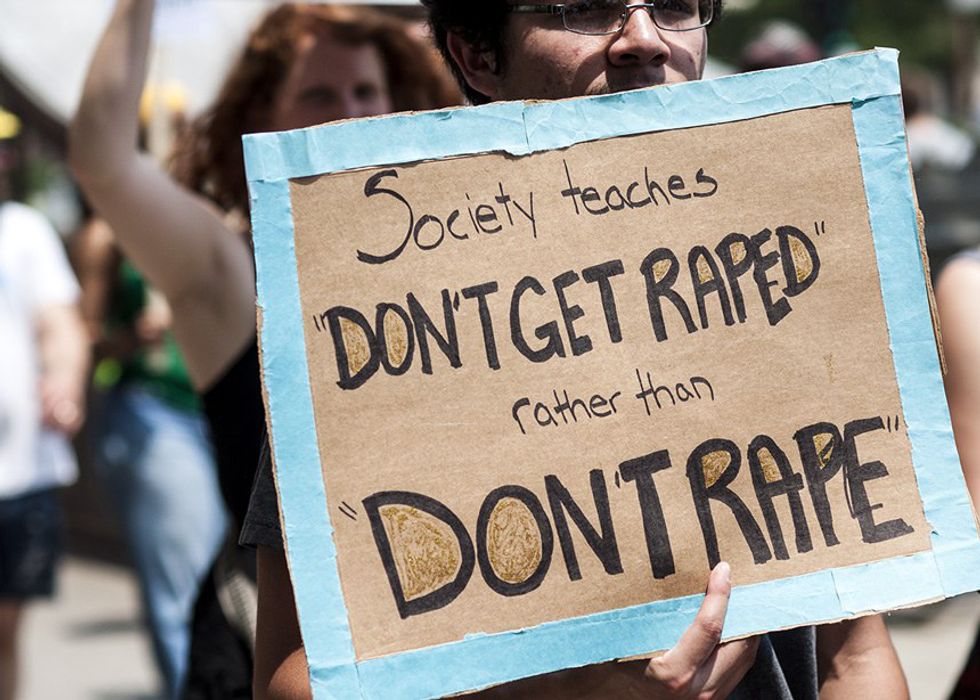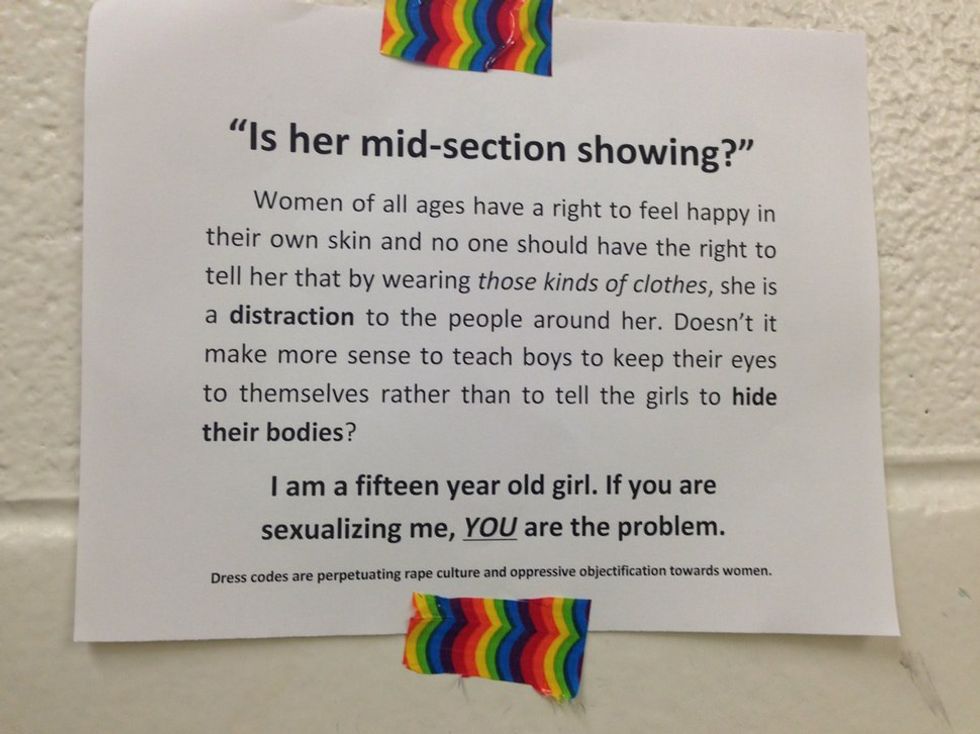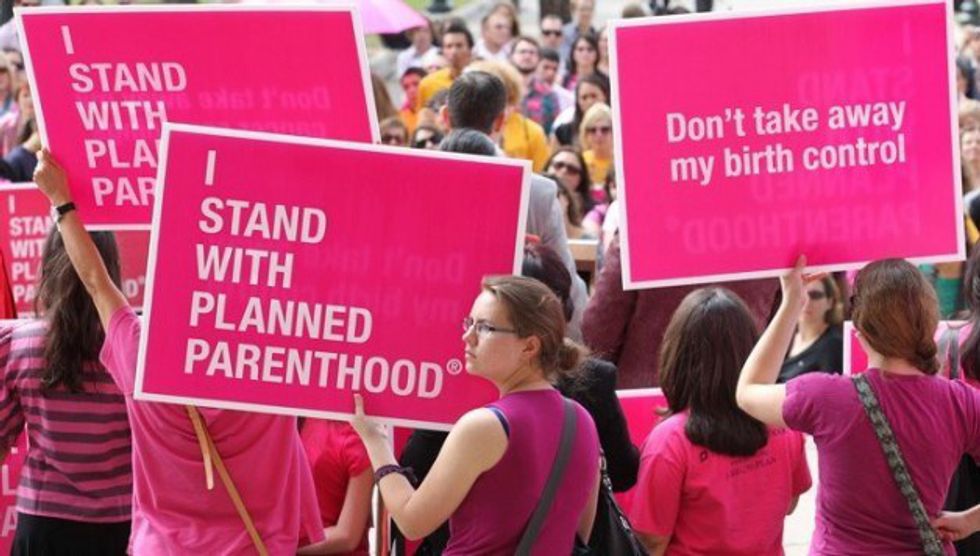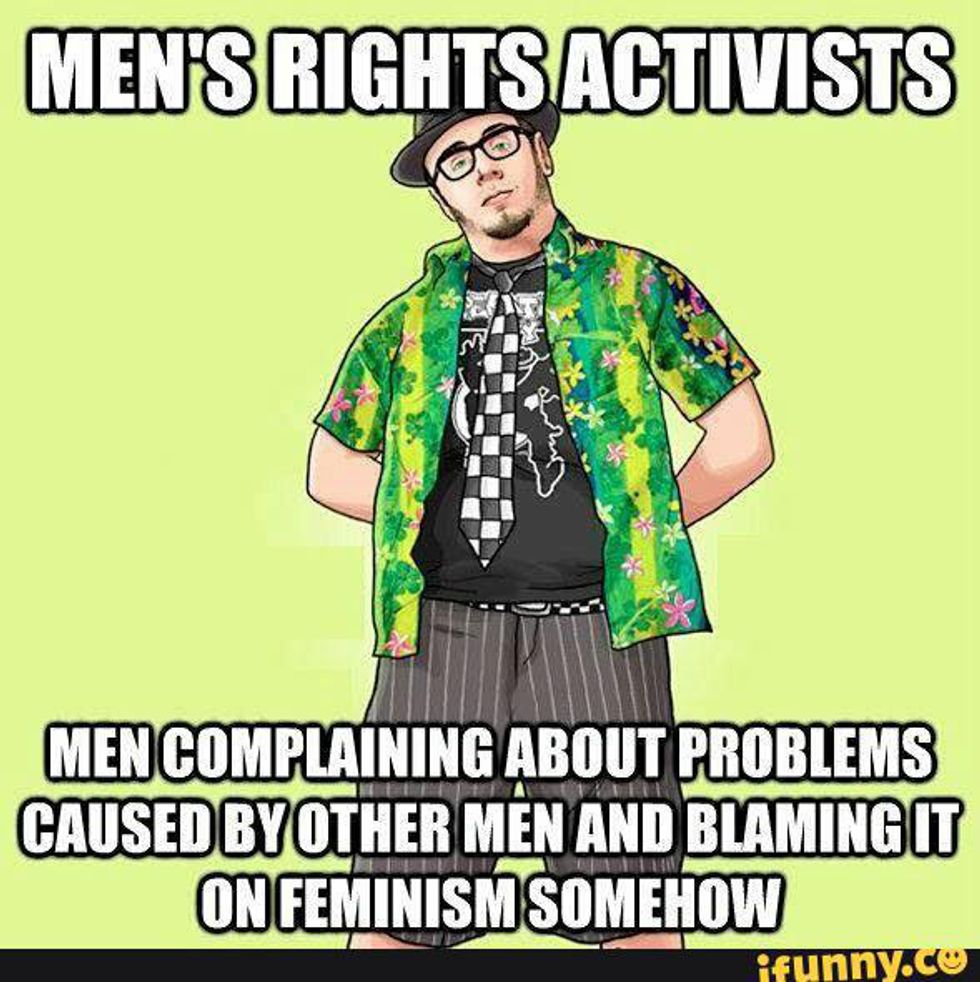The first movement for women's equality started in the 19th century and lasted well into the 20th. The second movement, where feminism was truly given a name, began in the '60s and lasted until the '80s. Modern day feminism began in the '90s and is still going on today. There are some people who believe that because women earned the right to vote, their fight for equality is over. Recently I've noticed in classes, social media and casual conversation that feminism is still not taken seriously. Although we've come a long way since the 1800s, the need for social justice will never be over until people of all genders: man, woman or somewhere within the spectrum, receive the same rights. Just in case you weren't aware, we still have a long way to go until we're all seen as equal.
1. The Wage Gap
Despite popular belief, this is not a myth. Women still earn 77 cents for every dollar a man makes. Skeptics argue that women take different positions than men in the workforce, they work less or earn lower degrees.
However, the wage gap refers to the amount of money women make within the same job positions as men. Additionally, the 77 cents represents white women. The earnings for women of color are even lower. There are times where women take different positions than men, but that's because they aren't hired in higher positions (not because they aren't qualified, but because of their gender).
If women work less, it's because they are expected to be the home-makers and mothers. They have to spend time with their children because their husbands won't be the ones to take time off of work. Women don't go further in their education to earn doctorates or PhDs because from a young age they learn not to aim for those careers as they're meant for men.
2. Violence Against Women
In 1993, the United Nations General Assembly declared the elimination of violence against women. In modern day, one in three women are victims of physical and sexual violence often committed by intimate partners. These statistics are higher in countries where women are treated and seen as property to their husbands. The UN also found that women of minorities (including sexual orientation, ethnicity, disability status) were more likely to experience some form of violence.
3. Rape Culture
Rape culture describes an idea that a society or culture normalizes and excuses sexual violence. This is perpetuated when universities allow fraternities to remain on campus despite chants that encourage sex without consent or signs asking fathers to drop off their freshmen daughters
at their houses. Blaming the victims of sexual assault and asking them what they were wearing are also examples of rape culture. The belief becomes further embedded in our society through pop music lyrics and rape jokes without anyone correcting what is being said.4. Dress Codes
In 2015, young women used social media to their advantage to expose the sexist nature of their schools. Many posts went viral, showing what the young girl was wearing and why she was asked to change. Girls wearing skirts deemed too short, dresses seen as too sexy and tops too distracting were all discriminated and shamed. It's important to realize that the issue isn't with what the girls are wearing but with the over sexualization of women's bodies. In hot summer months, girls are wearing shorts in order to stay comfortable, not to distract
their male classmates. A shoulder or bra strap showing should not be seen as inappropriate. Girls should have the freedom to wear what is comfortable to them in the same way that their male peers do. Sending them home because of their clothing reiterates the idea that a man's education is more important and the woman is at fault for being "distracting". The girls are not the problem. The problem is sexualizing the bodies of young women.5. Reproductive Justice
Republicans have attempted to defund Planned Parenthood in an effort to control the reproductive rights of women. As a result, there have been mixed reactions-- feelings of hostility and support towards the organization. While some have chosen to enact deadly attacks
on the company, others stand in solidarity with it. Many people don't realize that abortions are a small percentage of what Planned Parenthood does. They also perform breast exams, give STD/STI/HIV tests, prescribe birth control, etc. It shouldn't be anyone's decision except for the woman it affects to make a choice regarding her body. Laws need to protect the rights of women to have freedom over their bodies in the way that men have control over theirs.6. Advertisements
Mainstream media constantly bombards us with images for products and services. Most of these are targeted at women encouraging us to better ourselves or pick at our flaws. Generally, we see thin, white women and are taught that this is what the ideal body looks like. Other ads depict violence towards women that can be overlooked due to the subtle nature. Often, we blame women for developing eating disorders and low self-esteem, but they're just victims of social norms. Despite what some believe, women don't choose to have low self-esteem. They don't choose to have eating disorders. Advertisements in our culture are based on patriarchal views that diminish and objectify women.
7. Meninism
In order to combat feminism, "meninism" sparked up. This belief degrades feminists and fights for men's equality... because that makes sense? First, it's important to understand that feminism is the belief that men and women should be equal. It isn't about getting women ahead of men; it's making sure that everyone has equal opportunities. Meninism stands for the liberation of men. Last time I checked, our culture follows patriarchal ideals which in turn, means that men are already ahead. What's even worse is the women who support meninism claiming that we already have equal rights and no longer need feminism. Basically, meninism is actually the worst.
There are various other examples of why we still need to fight for women's equality, but these are the most common and predominant in our society and all over the world. Feminism is very important and should be taken seriously. By disregarding it, the need for it escalates. In order to move forward, everyone needs to be equal.




